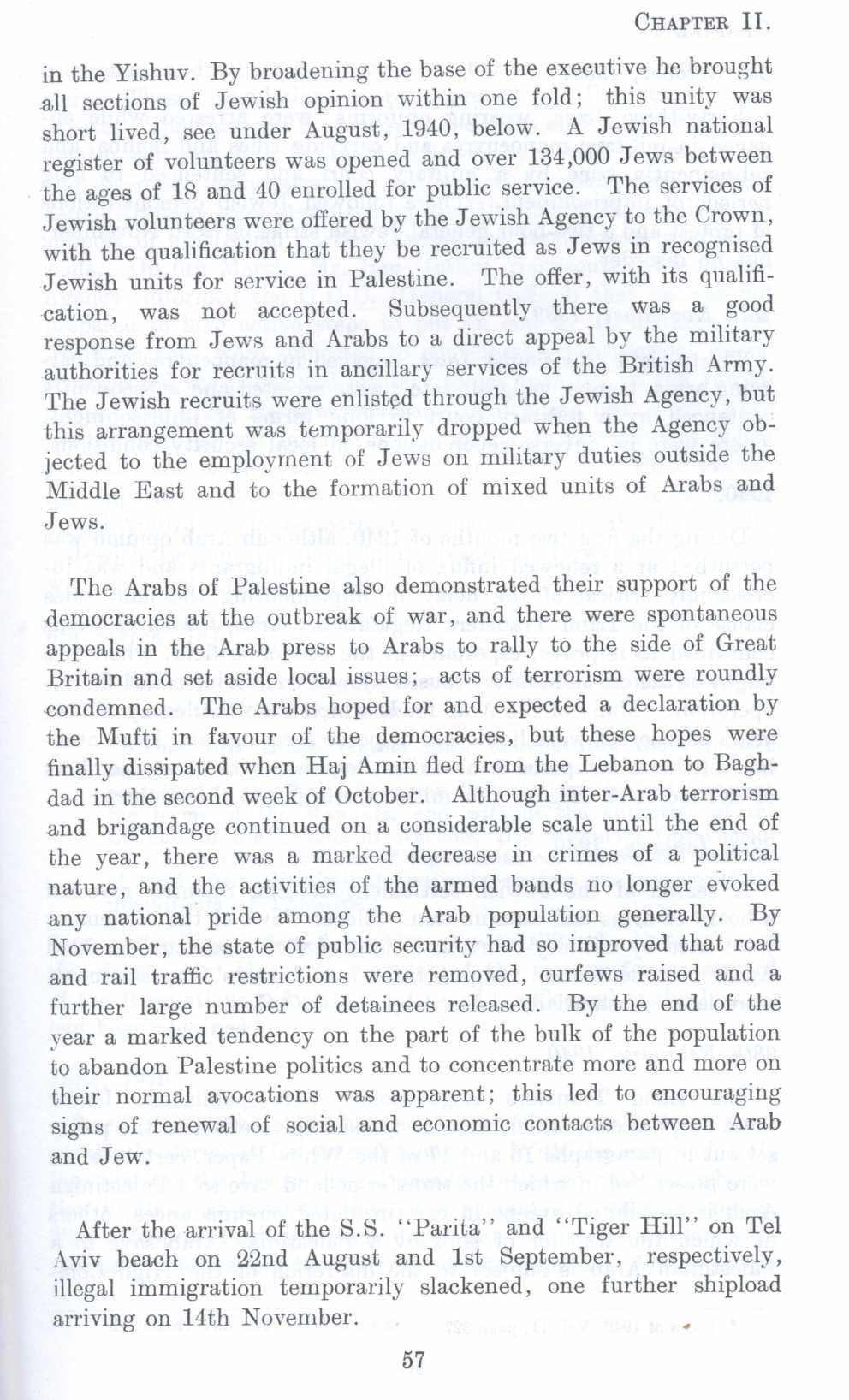| Prev | Next |  |
| Prev | Next |
| PalestineRemembered | About Us | Oral History | العربية | |
| Pictures | Zionist FAQs | Haavara | Maps | |
| Search |
| Camps |
| Districts |
| Acre |
| Baysan |
| Beersheba |
| Bethlehem |
| Gaza |
| Haifa |
| Hebron |
| Jaffa |
| Jericho |
| Jerusalem |
| Jinin |
| Nablus |
| Nazareth |
| Ramallah |
| al-Ramla |
| Safad |
| Tiberias |
| Tulkarm |
| Donate |
| Contact |
| Profile |
| Videos |
British Mandate: A Survey of Palestine: Volume I - Page 57 |
Disclaimer
The above documents, article, interviews, movies, podcasts, or stories reflects solely the research and opinions of its authors. PalestineRemembered.com makes its best effort to validate its contents.


Post Your Comment
*It should be NOTED that your email address won't be shared, and all communications between members will be routed via the website's mail server.
in the Yishnv. By broadening the base of the executive he brought all sections of Jewish opinion within one fold; this unity was short Jived, see under August, 1940, below. A Jewish national register of volunteers was opened and over 134,000 Jews between the ages of 18 and 40 enrolled for public service. The services of Jewish volunteers were offered by the Jewish Agency to the Crown, with the qualification that They be recruited as Jews in recognised Jewish units for service in Palestine. The offer, with its qualification, was not accepted. Subsequently there was a good response from Jews and Arabs to a direct appeal by the military authorities for recruits in ancillary services of the British Army. The Jewish recruits were enlisted through the Jewish Agency, but this arrangement was temporarily dropped when the Agency objected to the employment of Jews on military duties outside the Middle East and to the formation of mixed units of Arabs and Jews.
The Arabs of Palestine also demonstrated their support of the democracies at the outbreak of war, and there were spontaneous appeals in the Arab press to Arabs to rally to the side of Great Britain and set aside local issues; acts of terrorism were roundly condemned. The Arabs hoped for and expected a declaration by the Mufti in favour of the democracies, but these hopes were finally dissipated when Haj Amin fled from the Lebanon to Baghdad in the second week of October. Although inter-Arab terrorism and brigandage continued on a considerable scale until the encl of the year, there was a marked decrease in crimes of a political nature, and the activities of the armed bands no longer evoked any national pride among the Arab population generally. By November, the state of public security had so improved that road and rail traffic restrictions were removed, curfews raised and a further large number of detainees released. By the end of the year a marked tendency on the part of the bulk of the population to abandon Palestine politics and to concentrate more and more on their normal avocations was apparent; this led to encouraging signs of renewal of social and economic contacts between Arab and Jew.
After the arrival of the S.S. "Parita" and "Tiger Hill" on Tel Aviv beach on 22nd August and 1st September, respectively, illegal immigration temporarily slackened, one further shipload arriving on 14th November.
Page 57